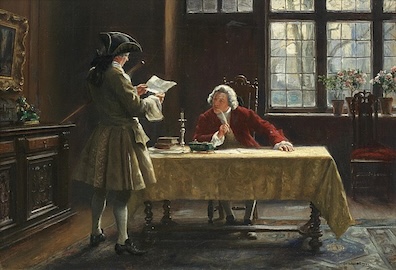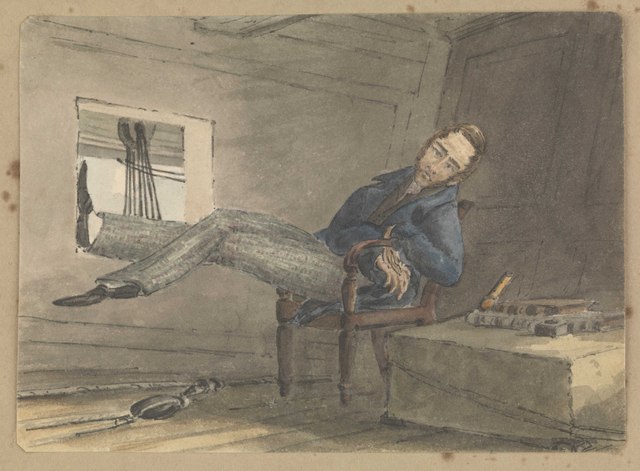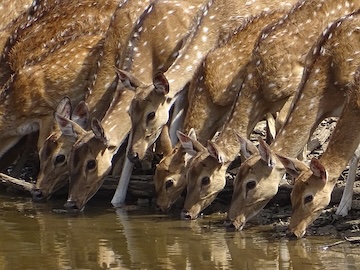25
Jack Cade brought a protest to London with right on his side, but then threw it all away.
In 1450, King Henry VI was embroiled in the Hundred Years’ War with France. He was losing the war, and everyone knew it; but his noblemen were making a lot of money out of trampling on the rights of Englishmen in the war’s name. Kent was especially hard hit, and late that May Jack Cade emerged as the leader of the county’s discontent. This was how Charles Dickens told his story.
Posted November 13
26
On the same day in 1537, so the story goes, two baby boys were born, but the similarity between them ended there.
In 1527, courtiers began to whisper of Henry VIII’s rising obsession with finding a male heir, calling it the King’s ‘Great Matter’. After Queen Catherine had been put away, and Queen Anne had been beheaded, his prayers were answered when in 1537, Queen Jane bore him a son, Prince Edward. It was against this historical background that Mark Twain opened the tale of The Prince and the Pauper, published in 1881.
Posted November 10
27
Advice that is not based on honesty, humility and deep reflection is mere craft.
Ben Jonson’s Timber: or, Discoveries was not published until 1641, four years after his death. It took the form of a series of reflections on subjects from personal morality to literary criticism, written by a keen and principled observer of life in the theatre and also at Court. In this extract, he discusses the giving of advice.
Posted November 9
28
Benjamin Disraeli revealed the secret behind holding one’s place at the top of Parisian society.
In February 1860 the new Cobden-Chevalier treaty was announced, a breakthrough free-trade deal with France, and a new era in Anglo-French relations. An especially vocal opponent of it was MP and novelist Benjamin Disraeli; so when John Bright rose in the Commons and read aloud this passage from Disraeli’s Coningsby (1844), he drew a good deal of laughter.
Posted November 8
29
Whenever Charles Dickens felt his exhausting workload was starting to take its toll, he knew just what to do.
Charles Dickens corresponded regularly with a Swiss friend whom he had met in Lausanne, a M. de Cerjat. In one of his letters, written from his home near Rochester in Kent, Dickens shared with his friend the secret of his remarkably industrious working life — frequent trips to France.
Posted November 8
30
The animals in the jungle agree that amidst the drought, the sport of hunter and hunted has to be suspended.
In Rudyard Kipling’s story The Jungle Book, a prolonged drought has left Mowgli and the animals with no food and little water. The waterhole has sunk so low that the Peace Rock is showing, and Hathi, the elephant, has called the Water Truce so hunter and hunted alike can drink. As dusk falls, the truce is holding — though Bagheera, the blank panther, isn’t much help.
Posted November 7





